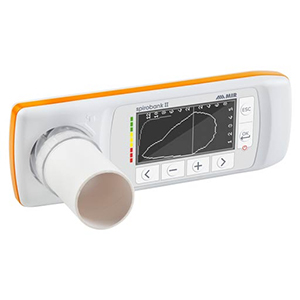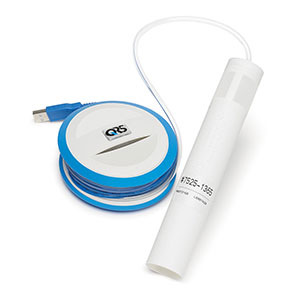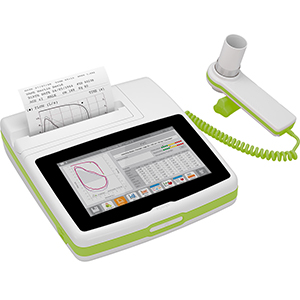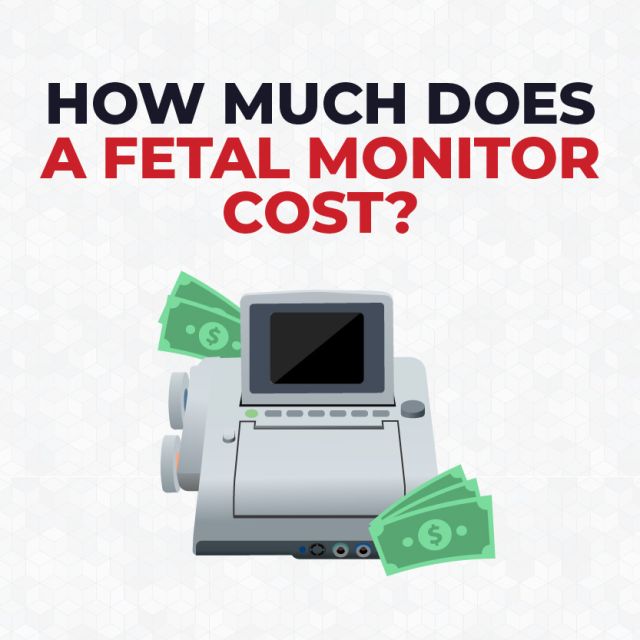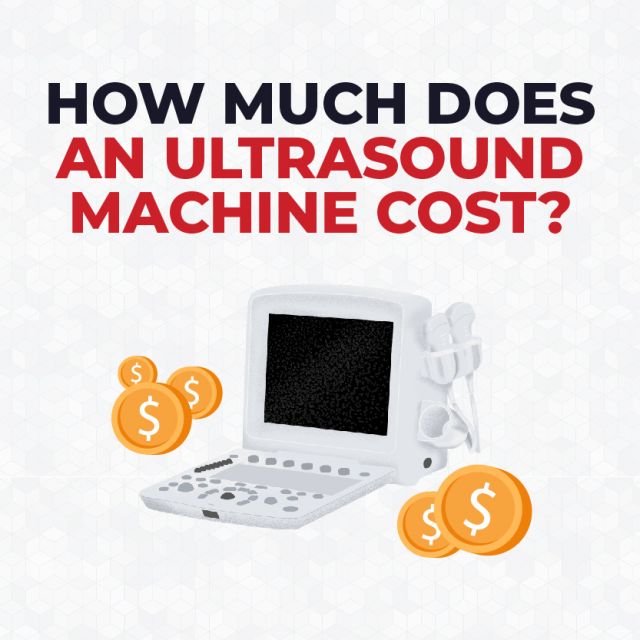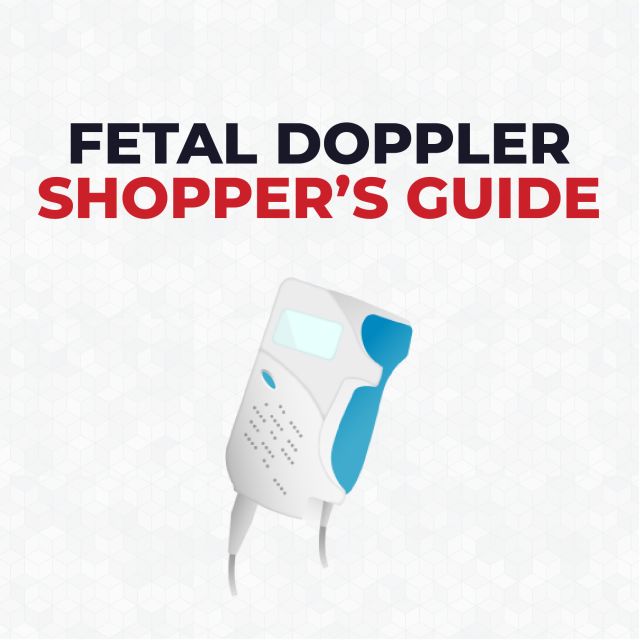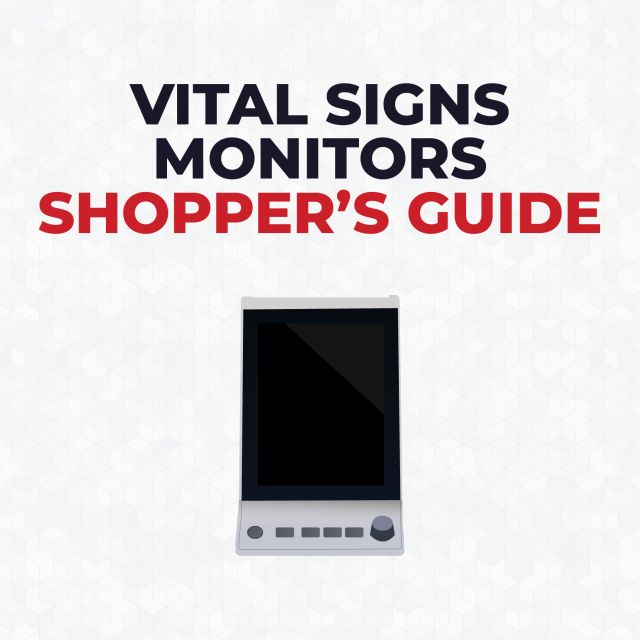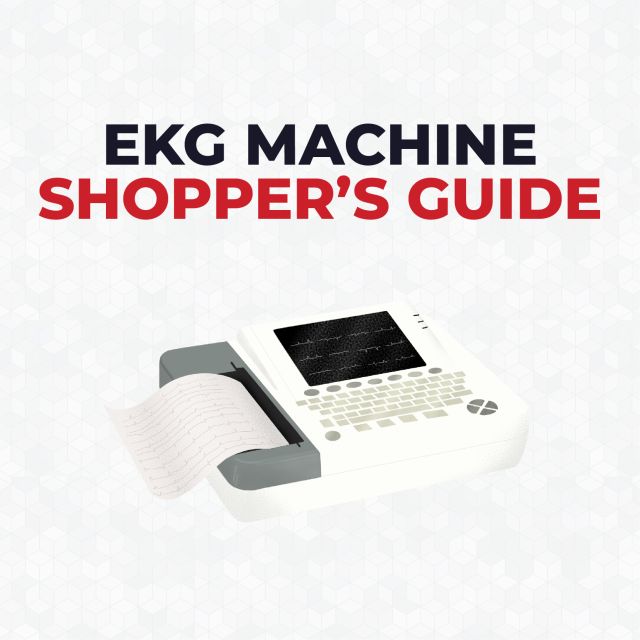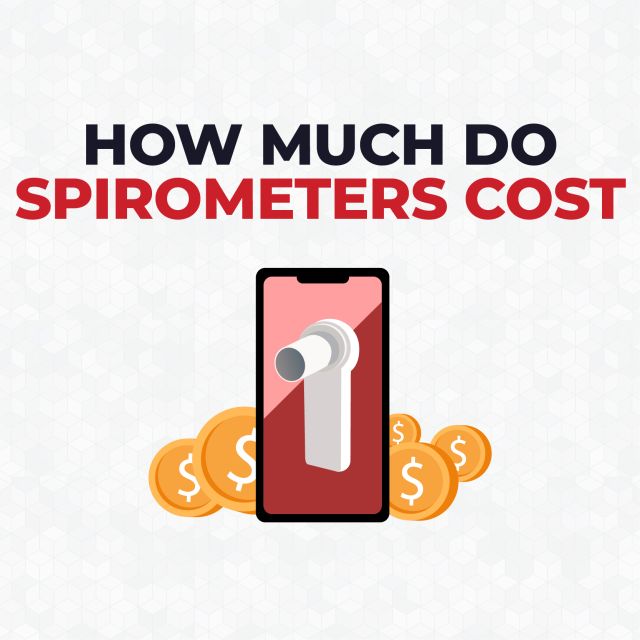How Much does a Spirometer Cost?
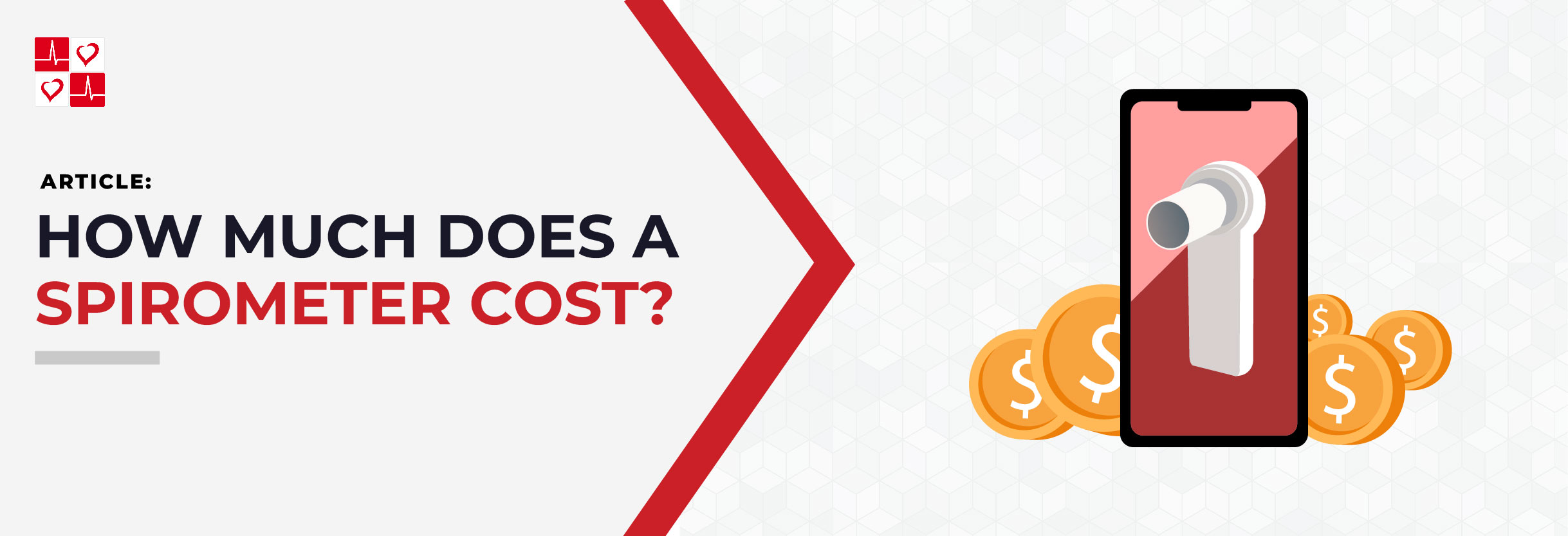
What is a Spirometer? (and what does it measure?)
Spirometers are a medical device used to detect obstructive and restrictive lung diseases. Doctors typically use spirometers on patients who deal with shortness of breath or other common symptoms. Most spirometers come with a mouthpiece or face mask that patients breath into.
A spirometer is able to measure three things:
- the amount of air that you inhale
- how much air you exhale
- the speed that you exhale the air from your lungs
How Much Does a Spirometer Cost?
The average price of a spirometer is dependent on the type of spirometer. There are 3 main types of Spirometers: handheld, PC-based, and tabletop.
Handheld Spirometers
Handheld spirometers are extremely user-friendly and useful in general practice or home care situations. While they are small and portable, handheld spirometers are limited for clinical settings.
A handheld spirometer typically falls in the $600 price range. Most handheld spirometers can measure FEV1, FVC, PEF, and FEV1%.
Tabletop Spirometers
Tabletop spirometers are the most expensive type of spirometer and are widely used in clinics and hospitals. They have all functions built-in, and don’t need to rely on any other machines.
Tabletop spirometers start at $1800 and can be as expensive as $3000. Many tabletop spirometers include features such as a built-in printer, Wi-Fi capabilities, and a touch screen LCD.
Other Important Considerations
Brand
The brand of the spirometer will have an impact on price. For example, Welch Allyn, NDD and MIR are notable spirometer brands, and are therefore more expensive.
Accessories
Spirometers with disposable accessories, such as mouthpieces, will be less expensive upfront, but come with the frequent recurring costs of replacements.
On the other hand, spirometers with reusable accessories will be a more significant investment upfront, but will not require as frequent replacements of mouthpieces.
Calibration
Some spirometers that require calibration need to additionally purchase a contract for the machine to be calibrated periodically after purchase. Other spirometers contain pre-calibrated mouthpieces.
Reimbursement Rates:
Each spirometer has different CPT codes that allow medical professionals to document the varying tests they run on patients. Additionally, CPT codes offer varying reimbursement rates.
For example, if the spirometer you purchase has FVL, you will receive more money back for running tests with the machine.


